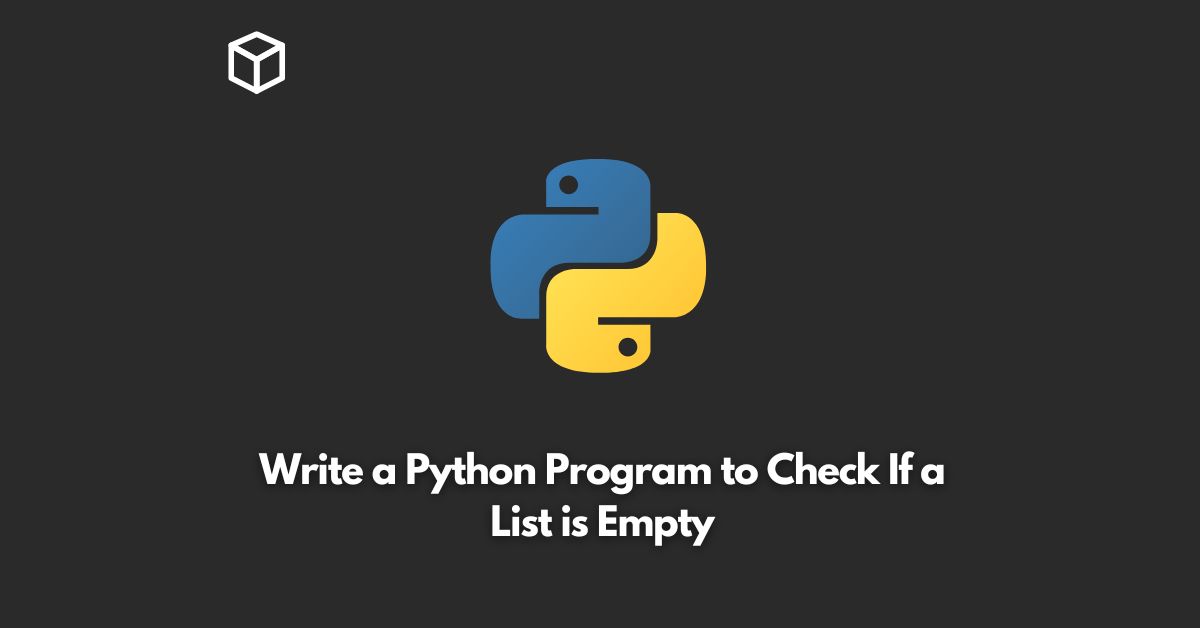As a Python programmer, it’s essential to check if a list is empty.
An empty list is a list that contains no elements.
It’s important to know whether a list is empty or not because it allows us to perform different operations on the list.
In Python, we can check if a list is empty using a simple conditional statement.
Here’s how we can do it:
my_list = []
if not my_list:
print("The list is empty")
else:
print("The list is not empty")
In the above code, we define an empty list my_list.
We then use the not operator to check if my_list is empty.
If my_list is empty, the not operator will return True, and the code inside the if block will execute.
If my_list is not empty, the not operator will return False, and the code inside the else block will execute.
We can also use the len() function to check if a list is empty.
The len() function returns the number of elements in a list.
If a list is empty, the len() function will return 0.
Here’s an example:
my_list = []
if len(my_list) == 0:
print("The list is empty")
else:
print("The list is not empty")
In this code, we check if the length of my_list is equal to 0. If the length of my_list is 0, the code inside the if block will execute.
Otherwise, the code inside the else block will execute.
In conclusion, checking if a list is empty is a simple task in Python.
We can use the not operator or the len() function to check if a list is empty.
Knowing whether a list is empty or not is important because it allows us to perform different operations on the list.





